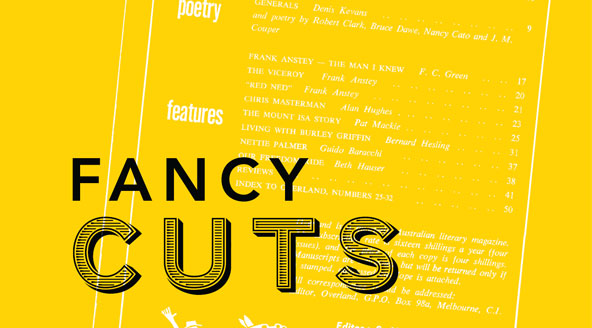There has, in recent years, been a push to rescue various ‘lost’ writers from obscurity. And yet the short story is a literary form deeply embedded in its time. Much of the energy that has sustained Overland throughout the years derives from its contemporaneity – its commitment to the urgent, emerging or marginalised voices of its day.
For Overland’s diamond jubilee, I wanted to acknowledge the incredible legacy of writing that sixty years of short stories represents but also continue a tradition of keeping our eyes on the present day, and facing the future – a future which demands fresh imaginative reach.
A ‘fancy cut’ is a non-traditional way of shaping a diamond, allowing the cutter to follow the outline the rough stone suggests, or to carve a pattern of their own liking.
In 2014, Overland has commissioned four contemporary writers to contribute a short story that responds in some way to a piece of fiction from our sixty years of archives. In shaping their responses, we have asked these writers to take any facet they wish – voice, character, setting, a moment in time – and make it their own.
The first of these Fancy cuts is from Josephine Rowe, a Melbourne writer living in Montreal, Canada, whose story ‘A small cleared space’ began with Roma O’Brien’s story ‘When the bough breaks’, first published in Overland 32, August 1965. O’Brien’s story is republished at overland.org.au.



